We will be faced with enormous amounts of water and extreme drought. Whereas access to water is now taken for granted, this will change in the future. A transition to collective water management can offer a sustainable and fairer solution here.
On Wednesday 2 July, KIN therefore organised a second Crutzen workshop in collaboration with the HAS Green Academy. During the Crutzen workshops developed by KIN, stakeholders (researchers, policymakers, social parties) work on the outlines of a work programme in a short period of time. Roughly a year ago, the ACT Work Programme emerged from the first Crutzen workshop. Now, a group of experts from the fields of water management practice and research came together to explore what is needed to make the transition possible and what role knowledge can play in this. But also what kind of interventions and measures are needed and what we can learn from practices that are already moving in the desired direction.
Led by Ellen Weerman and Veerle Joosen, both affiliated with HAS University of Applied Sciences, the participants spent a day identifying the barriers and challenges to transition, questions about change and possible solutions. It was a pressure cooker of a meeting that yielded valuable takeaways for follow-up steps, even though it was already 36 degrees outside (and sometimes inside).
A detailed report will follow shortly.
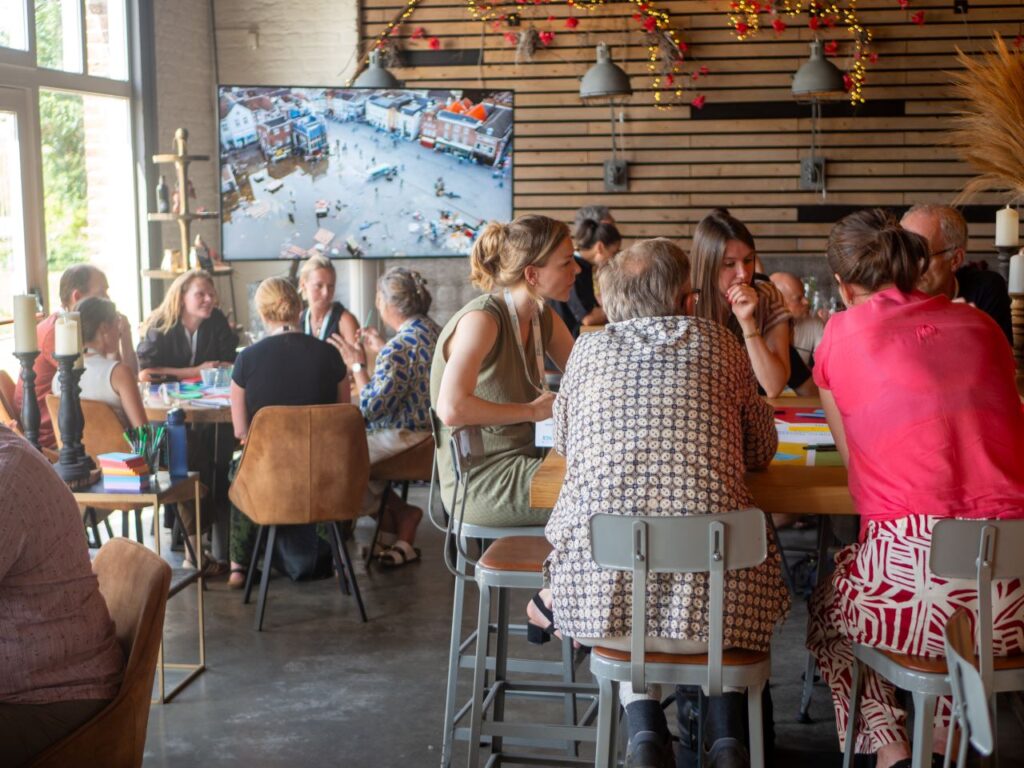
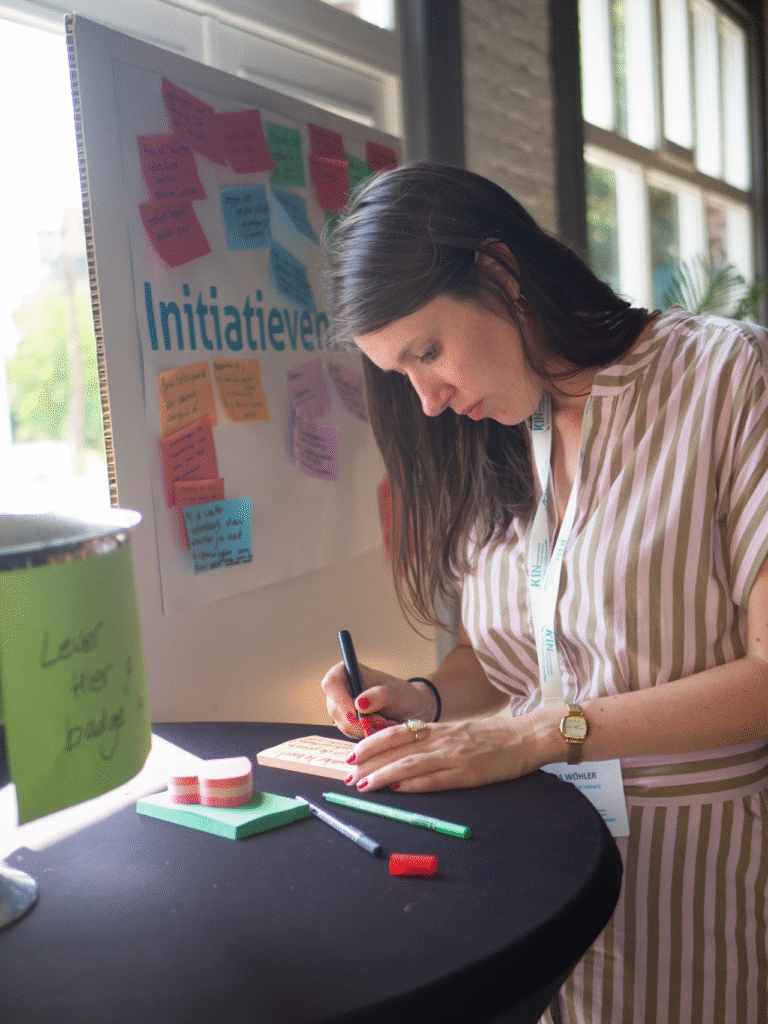
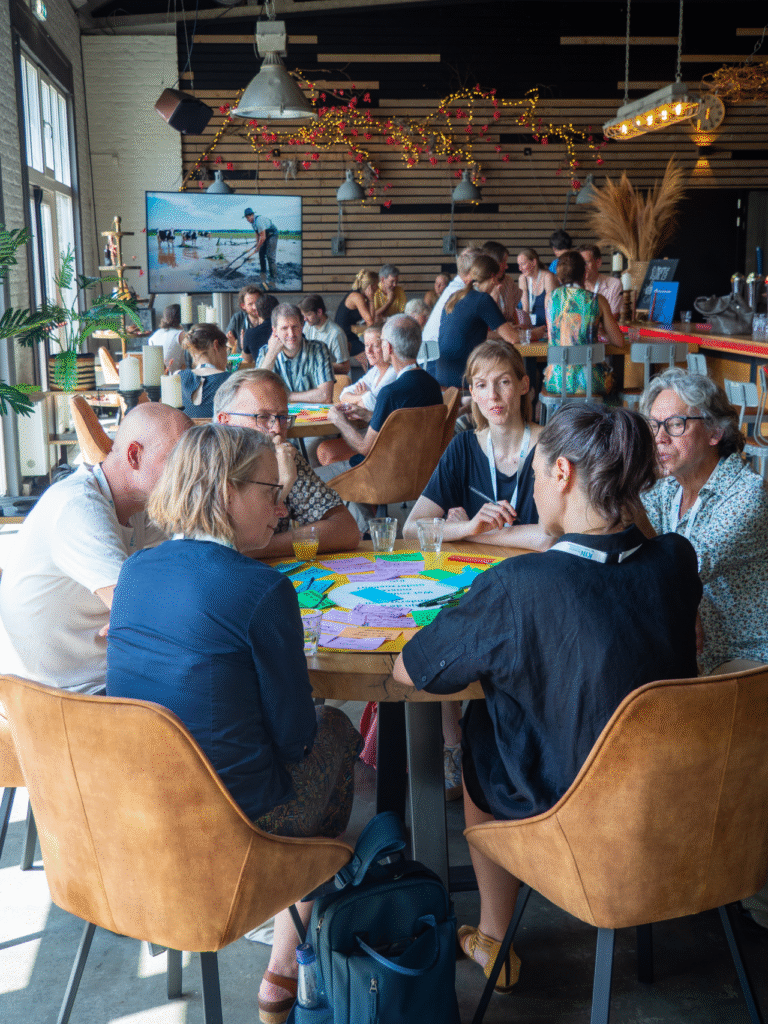
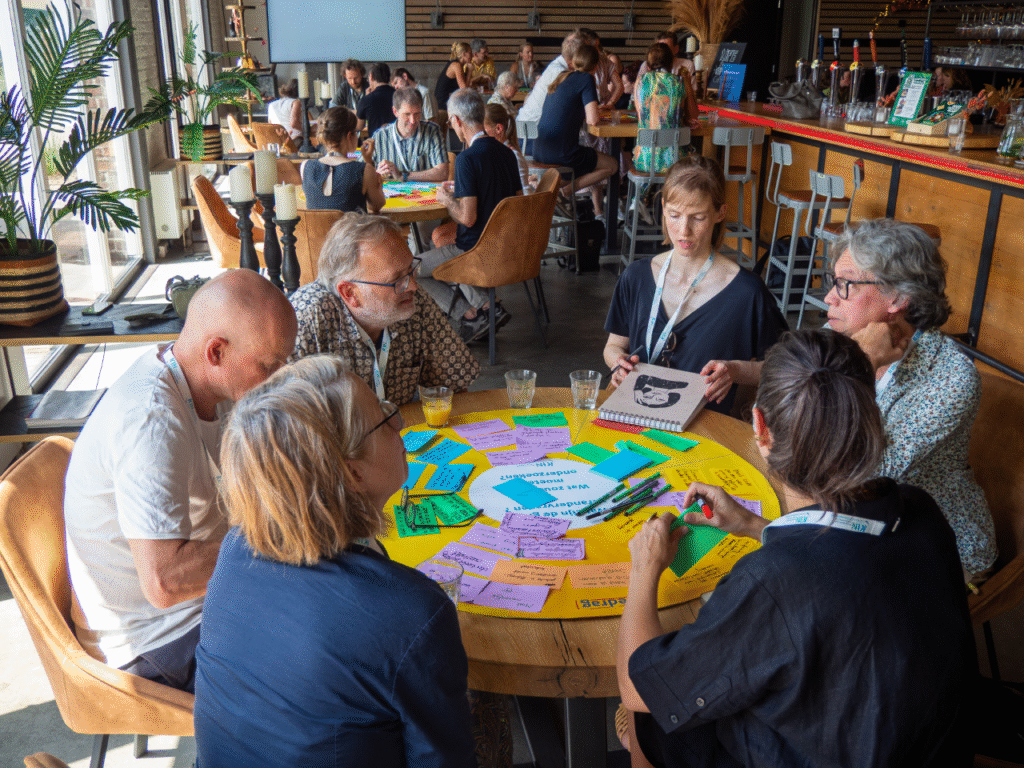
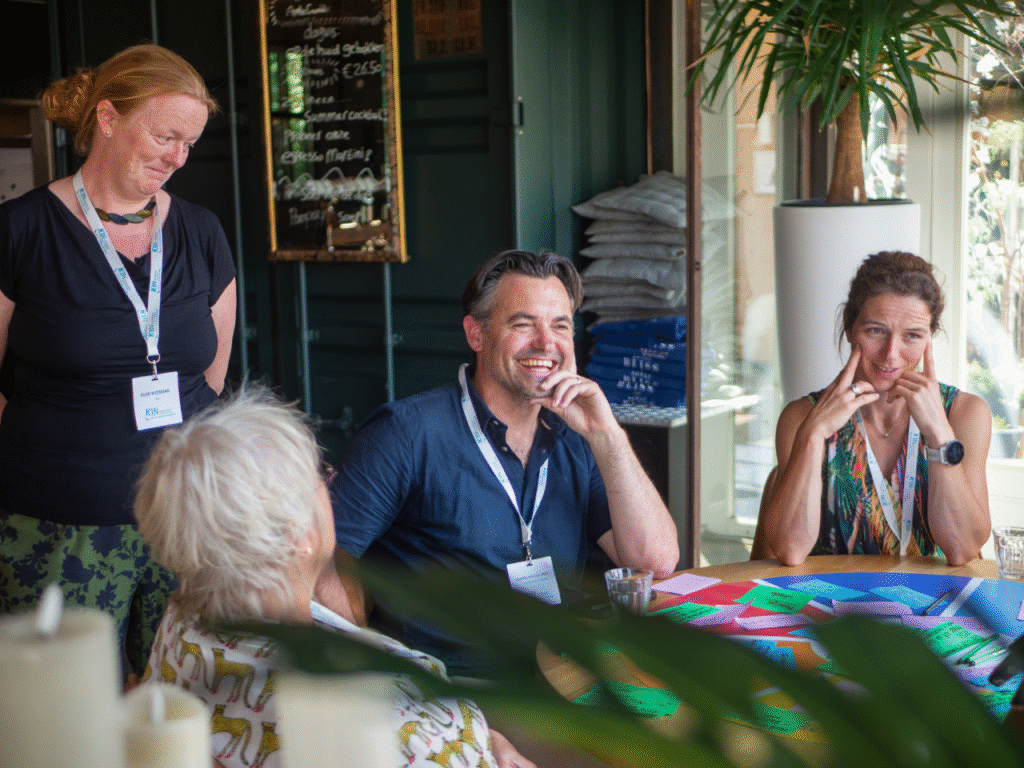
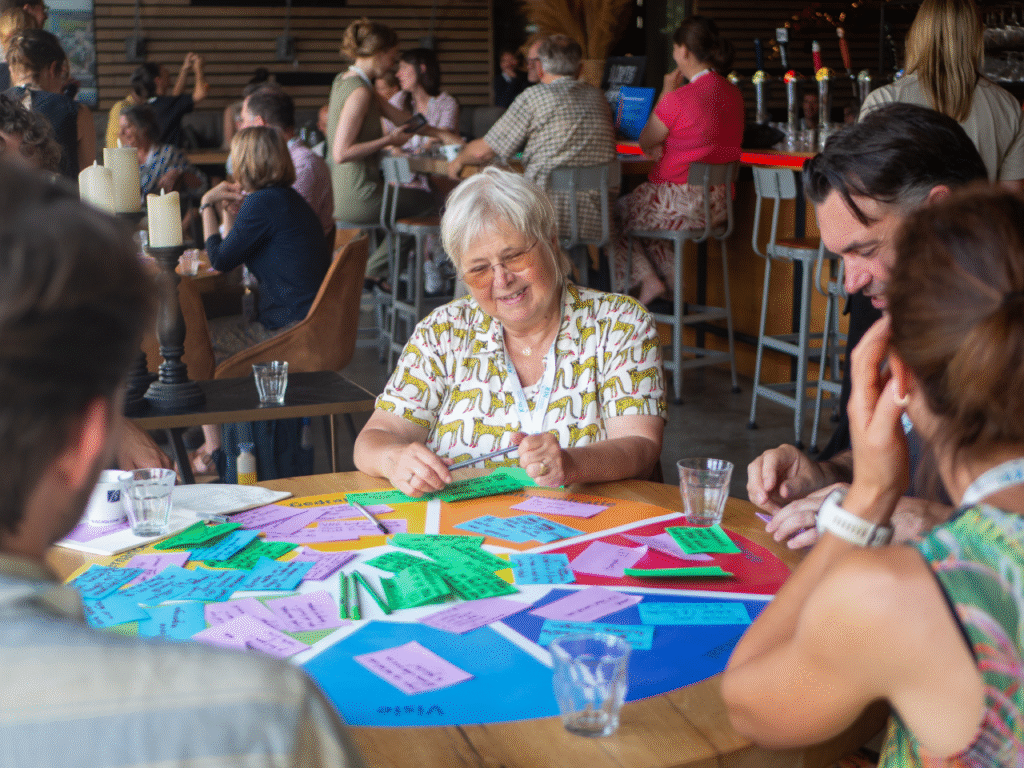
A few takeaways from the day:
- We need to learn to value water differently: not just economically, but holistically.
- A different form of governance is needed for collective water management. With new forms of cooperation and shared responsibilities and resources.
- The way we frame water and the water system matters. The current system talks about using, discharging and extracting water. There is another way!
- The power lies in local initiatives and simple interventions to transform the entire system: from “how” to “what”.
At the end of the day, participants had the opportunity to brainstorm possible initiatives they would like to tackle together. Because this day was not a one-off event. Prior to this, a transition analysis was carried out by Ellen Weerman and Veerle, in which various parties also played a crucial role, such as the Waterbank, Waterschap de Dommel, the Waterambassade, Heijmans, Staf Deltacommissaris, and various researchers. The day will be followed up by the KIN converting the results of this crucial workshop into a programme, with a focus on knowledge in action: learning together by taking action together.
